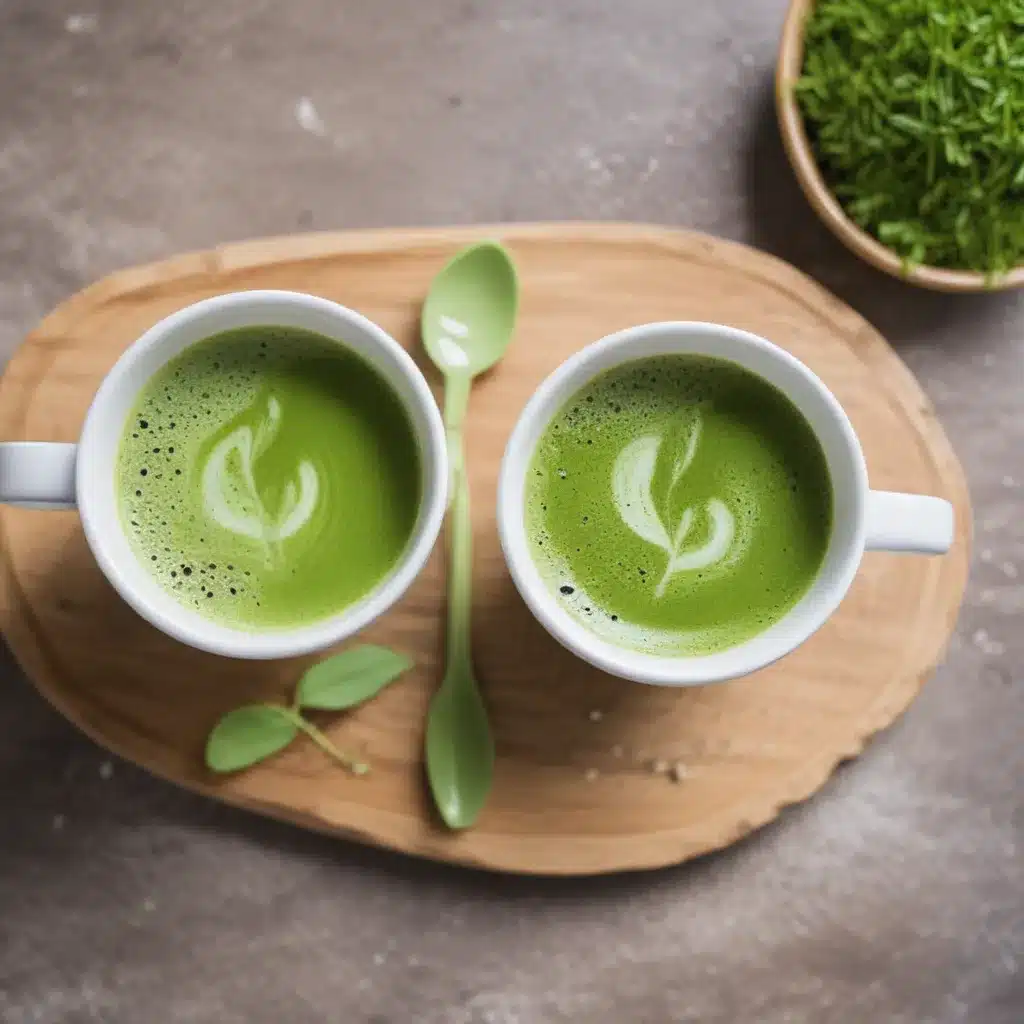
The Caffeine Conundrum: Coffee or Matcha?
As an unabashed coffee lover, I’ve always been drawn to the rich, aromatic brew that jumpstarts my day. The alluring scent of freshly ground beans, the satisfying first sip that jolts me awake – it’s a ritual I cherish. But recently, I’ve been hearing a lot of buzz (pun intended) about matcha, the vibrant green tea powder. Apparently, it’s the new supercharged superfood that can deliver a potent punch of energy and focus.
So, I found myself wondering: is matcha really the superior choice when it comes to fueling my productivity and mental acuity? Or is good old coffee still the reigning champion? In the spirit of full disclosure, I should mention that I’m a bit of a coffee snob. I frequent Brooklyn’s Georgian Coffee House, where they source their beans from the finest, most ethically-minded roasters. But I’m always open to trying new things, especially if they can give me an edge.
The Caffeine Comparison
Let’s start by looking at the caffeine content. After all, that’s the primary reason most of us reach for a cup of joe or a matcha latte in the first place. A typical 8-ounce cup of coffee contains around 95mg of caffeine. In comparison, an 8-ounce serving of matcha powder mixed with water packs a modest 70mg of caffeine.
At first glance, that might make coffee seem like the better option. But matcha enthusiasts argue that the caffeine in matcha is absorbed more slowly and steadily, leading to a more sustained energy boost without the dreaded caffeine crash. The theory is that the amino acid L-theanine found in matcha helps to balance out the caffeine, creating a calmer, more focused state of mind.
The Nutritional Showdown
Of course, caffeine isn’t the only factor to consider. Matcha is touted as a veritable nutritional powerhouse, containing impressive amounts of antioxidants, vitamins, and minerals. In fact, just one gram of matcha powder is said to have the same nutritional value as 10 cups of regular green tea. It’s packed with catechins, a type of antioxidant that may enhance cognitive function and even have cancer-fighting properties.
Coffee, on the other hand, is no slouch in the nutrient department either. It’s a rich source of B vitamins, magnesium, and other beneficial compounds. Some studies even suggest that regular coffee consumption may lower the risk of type 2 diabetes, Parkinson’s disease, and liver cancer.
The Jitter-Free Advantage
One of the common complaints about coffee is that it can sometimes cause jitteriness, anxiety, and other unpleasant side effects, especially for those sensitive to caffeine. Matcha, on the other hand, is often touted as providing a smoother, more even energy boost.
The reason for this lies in the unique way matcha is processed and consumed. Unlike regular green tea, where the leaves are steeped and then discarded, with matcha you’re actually ingesting the entire ground-up leaf. This means you get the full spectrum of beneficial compounds, including that soothing L-theanine.
Moreover, the powdered format of matcha allows for a more gradual absorption of caffeine, which may explain why many people report feeling more calm and focused after drinking it, rather than the typical coffee-fueled jitters.
The Preparation Ritual
Another factor to consider is the preparation process. Brewing a cup of coffee is a relatively straightforward affair – grind the beans, add hot water, and enjoy. Matcha, on the other hand, has a rich cultural heritage and a more elaborate preparation ritual.
Traditionally, matcha is whisked with a bamboo chasen into a frothy, emerald green elixir. It’s a meditative process that encourages mindfulness and attention to detail. For some, this ritual can be a soothing way to start the day, or a much-needed break from the chaos of modern life.
Of course, you don’t have to go full traditionalist to enjoy matcha. These days, you can easily find matcha lattes and even matcha-infused baked goods at cafes like Brooklyn’s Georgian Coffee House. But the ceremonial aspect of matcha does add an extra layer of enjoyment and mindfulness to the experience.
The Verdict: It Depends
So, in the great coffee vs. matcha debate, which one reigns supreme? Ultimately, I don’t think there’s a simple answer. It really comes down to your personal preferences, needs, and lifestyle.
If you’re looking for a quick, robust caffeine fix to power you through the morning, then coffee might be the way to go. But if you’re seeking a more sustained, jitter-free energy boost coupled with a healthy dose of antioxidants, matcha could be the better choice.
Personally, I’ve found that alternating between the two, depending on my mood and activity level, works best for me. Some days, I crave the rich, bold flavor of a freshly brewed cup of coffee from Georgian Coffee House. Other days, I’m drawn to the ceremonial aspects of matcha, and the promise of a calm, focused energy.
At the end of the day, the decision is yours. Experiment, explore, and find what works best for your unique needs and preferences. And remember, whether you opt for coffee or matcha, the most important thing is to savor and enjoy the experience.



















